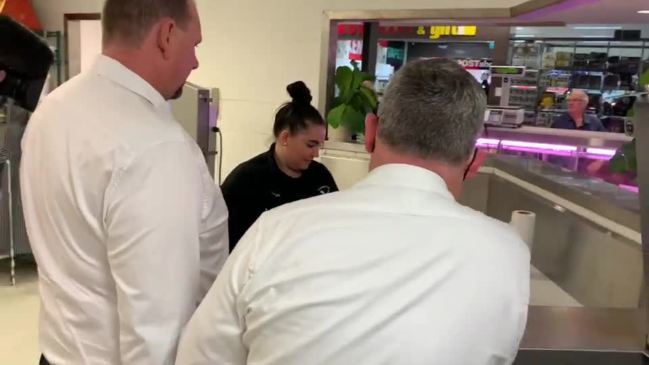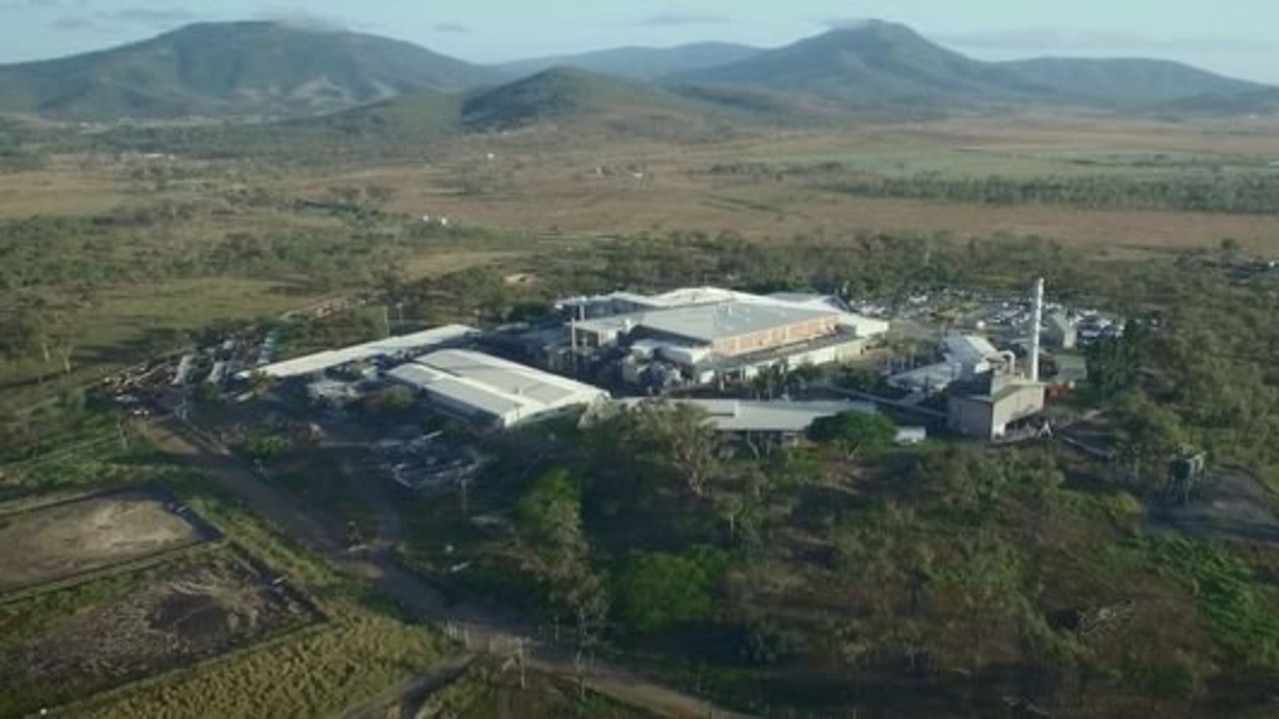Allenstown Square Meats owner Geoff Elliot finding it ‘impossible’ to get qualified staff
‘We are running out of butchers’: Australia’s meat industry is facing increasing pressure from a decline in workers, and it could begin to impact customers.

Rockhampton
Don't miss out on the headlines from Rockhampton. Followed categories will be added to My News.
It might be known as the Beef Capital of Australia, but the number of apprentices taking up a butcher trade in Rockhampton has dramatically decreased in the past decade in a trend that is sweeping the country.
Owner of Allenstown Square Meats and butcher for 43 years, Geoff Elliot, said he had noticed a big decline in the past 10 years in apprenticeships - and he’s not alone.
Some of the city’s major employers, meatwork operators Teys and JBS, are also feeling the pinch and finding it hard to get staff.
Across Australia, butcher apprentices have fallen from 5,000 in 2013 to fewer than 2,500 at the end of 2020. Queensland is reported to be the worst affected state.
Job advertisement website Seek.com.au had 150 listings for butcher jobs in Queensland on Thursday, with four of those in Rockhampton, one for IGA and the other three for multiple roles with JBS Meatworks.
“Getting butchers is really hard to source,” Mr Elliot said.
“We have to get back on, where we are trying our own apprentices, bring them through and keep the retail butchering industry still alive.”
A butcher apprenticeship, which is a certificate III in meat retailing, takes three years to complete and all the works is carried out in the workplace.
The apprenticeship takes the worker through cutting, trimming and shape standards for cuts of meat, processing carcasses, packing and storing meat for display and sale, ordering supplies using AUS-MEAT language and weighing and checking stock, assembling and operating mincers, grinders, mixers, patty/sausage-forming machines and bandsaws, sales, preparing marinated meats and ready to cook dishes and providing customer advice about alternative cuts, cooking methods, storage requirements and meat nutrition.
Mr Elliot has had his two daughters working for him for the past 10 and 14 years.
After two of his butchers left and he was unsuccessful in finding qualified staff, he put his daughters on as apprentices along with one of their partners.
“I could not get much skilled labor out there, it’s nearly non-existent to source a butcher somewhere … it was impossible,” he said.
“I was back doing 60 to 70 hours … I don’t want to be doing that, I am too old for that.”
Mr Elliot said there “has to be incentives to employers to put apprentices on”.
“We have battled for a long time,” he said.
“A lot of butchers have moved on from the game for different reasons.
“There has to be incentives for the employers to get back and train, whether it be young people or mature age apprentices.”
Senator Murray Watt visited Rockhampton last week to address the issue, labelling it an “ongoing skills crisis across much of regional Queensland”.
“One of the biggest issues that gets raised with me is skills shortages and we are seeing that in all sorts of trades, construction, hospitality and butcher shops,” he said.
“It’s having a really big impact on consumers and employers. If we don’t change course, we are going to see the Aussie barbecue under threat.
“If you haven’t got enough butchers to cut the meat, prepare the meat for people, where are people going to get their snags from for the barbecue.
“I was shocked when I heard these statistics.
“Who would have thought in the Beef Capital of Australia, we are running out of butchers.”
Labor candidate for Capricornia Russell Robertson said the “dramatic drop” across Rockhampton and Queensland’s meat industries was due to the $4 million cut to tertiary education by the federal government.
“Considering we are the Beef Capital, we really need to get in, get this stuff fixed and make sure we give people the opportunity,” he said.
“We are not seeing the ability to train our young people as a traditional butcher.”
The federal government has announced a $3.9 billion Boosting Apprenticeship Commencements program.
From October 2021, eligible employers will receive a 10 per cent wage subsidy in the second year of an eligible apprenticeship and five in the third year.

TEYS ROCKHAMPTON FEELING THE PINCH OF BUTCHER SHORTAGE
Teys general manager corporate and industry affairs John Langbridge spoke with The Morning Bulletin about the qualified butcher shortages in metro and regional areas.
He said it was an industry challenge and the low numbers were a result of more than 10 years of decline with people not choosing meat processing as a career – a lack of apprentices, has meant a lack of qualified staff.
“The impact of labour shortages on the red meat industry, if not addressed, will have major repercussions for regional communities not far down the track,” Mr Langbridge said.
The future might not be full of steaks and snags if the apprentice and butcher numbers don’t pick up.
“Continued labour shortages in the meat processing sector will reduce the processing capacity of the whole industry at a pivotal time when cattle numbers climb nationally, as producers start rebuild their herds,” Mr Langbridge said.
“Rural and regional communities will be significantly impacted if the meat processing sector is unable to support cattle processing due to labour shortages, not due to plant capacity or lack of infrastructure – essentially an artificial reduction in processing capacity would then cause a drop in cattle prices.”
More focus from the government in schools on the vocational pathways available would help, Mr Landbridge said.
“Particularly those in regional areas, see the expanse of trades, technical, digital, logistics, livestock, sales, administrative, and managerial roles that our rapidly evolving industry provides,” he said.
“Whilst government assistance is available to trainees and apprentices, there are other pathways to diverse and rewarding careers in the meat processing industry.
“The Rockhampton community and education partnerships with Teys are great examples of the pathways to career opportunities in the sector without going through university.
“Vocational traineeships in partnership with local schools, like Rockhampton State High School are important community connections for Teys.
“In addition to connections to careers for school leavers, the meat processing industry provides employment opportunities and pathways to Australian citizenship for overseas migrants.”
Teys Rockhampton runs its operation on around 600 staff and is continually looking for new staff.
The plant currently has 17 vacancies for skilled and unskilled workers.
“We are always looking for hardworking employees to share our passion for feeding people around the world, and come and join the Teys team,” Mr Langbridge said.
The lack of workers domestically and from overseas during Covid has had an impact on the Teys workforce.
The effects of Covid has also affected the types of products customers are looking for from Teys.
“Covid has affected the types of products that customers are looking for,” Mr Langbridge said.
“As there has been a decrease in eating out, product for the hotel and restaurant sector has dropped in production, whilst product for the fast-food industry has increased.”
More Coverage
Originally published as Allenstown Square Meats owner Geoff Elliot finding it ‘impossible’ to get qualified staff








